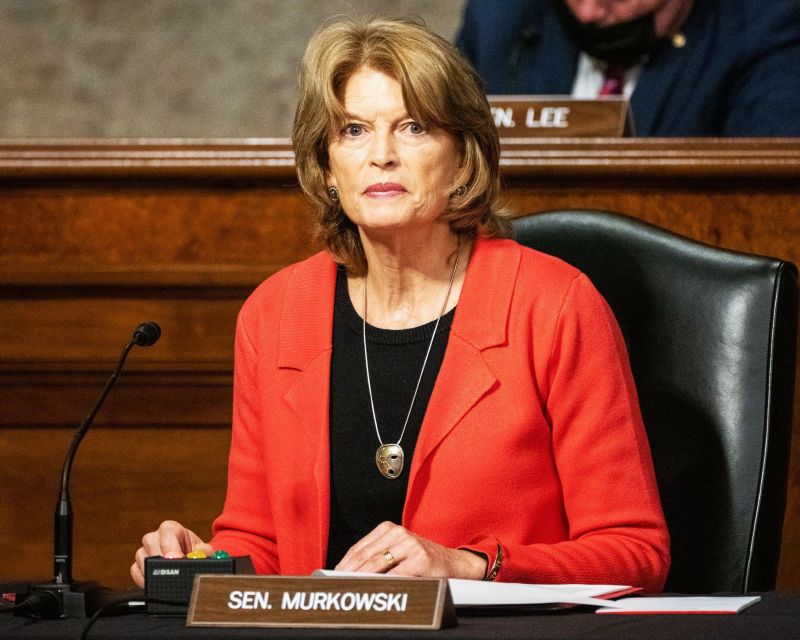Lisa Murkowski’s Pivotal Vote Draws Fire and Raises Alarms Over Republican Policy Bill
Senator Lisa Murkowski of Alaska, known for her independent stance and frequent divergence from party lines, has come under intense scrutiny after casting the decisive vote in favor of a sweeping Republican-backed policy bill. Despite her own admission that the legislation could harm many Americans, Murkowski voted "yes" after securing specific exemptions to shield her state from its most damaging effects.
“I don’t like this bill,” she admitted, visibly tense during a post-vote interview. “But I had to think about Alaska’s interests.” While protecting her constituents, she acknowledged that many Americans elsewhere “are not going to be advantaged” by the changes.
The legislation, pushed forcefully by former President Donald Trump, proposes significant cuts to essential programs like Medicaid and SNAP (food assistance). Among the controversial provisions are tighter work requirements and a reduction in federal funding for these safety nets. Murkowski had previously voiced deep concerns over these specific aspects, especially considering their potential impact on the nation’s most vulnerable populations.
In a Senate environment sharply divided along partisan lines, Murkowski found herself holding rare leverage. Her support became critical, giving her room to negotiate amendments that would favor her home state. Among the concessions was a quirky yet symbolic provision allowing certain Alaskan whaling captains to deduct more operational expenses—a nod to the state’s unique cultural and economic landscape.
To her supporters, these carve-outs were signs of a seasoned lawmaker using her position to deliver for her constituents. However, critics were quick to condemn the dealmaking. Some accused Murkowski of being “bribed” into backing a bill she herself acknowledged was harmful. Senator Ruben Gallego from Arizona criticized what he termed a “Kodiak Kickback,” suggesting she had traded integrity for political convenience.
The concessions didn’t come without national consequences. A workaround devised to protect Alaska from penalties due to its high SNAP payment error rate was expanded to shield ten other states, some of which also had spotty records in benefit administration. What was meant to be a narrow fix turned into a loophole critics say could encourage incompetence or misuse. Senator Amy Klobuchar, a top Democrat on the Agriculture Committee, warned that the bill sends a dangerous message: “Make more mistakes, and you’ll get rewarded.”
Murkowski reportedly wrestled with her decision for days, including a long overnight session where she conferred with colleagues while wrapped in a thick blanket to stave off the Senate chamber’s cold. She described the process as “agonizing,” reflecting on the painful trade-offs the bill forced her to consider.
“I struggled mightily with the impact on the most vulnerable,” she said, pointing to the cuts to Medicaid and food assistance programs. Still, she emphasized her desire to extend the 2017 tax cuts, which are set to expire soon, and said rejecting the bill outright would have hurt her state even more.
After the Senate vote, Murkowski expressed hope that the House of Representatives would improve the bill’s provisions. “This is not a perfect bill by any stretch,” she remarked, urging House lawmakers to refine the legislation before final passage.
But many in the opposing party weren’t satisfied with her explanation. Senate Minority Leader Chuck Schumer lambasted Republican senators for caving to Trump’s demands, accusing them of voting “in obeisance to Donald Trump and his billionaire buddies.” Quoting Murkowski’s own words from an earlier conference—“We are all afraid”—he used them to underline what he saw as cowardice in the face of political pressure.
Representative Jim McGovern of Massachusetts also seized on Murkowski’s post-vote remarks during a House committee session. “If you really believe the bill should be fixed,” he asked rhetorically, “why the hell did you vote for it?”
Now, as the bill heads back to the House where its future remains uncertain, Murkowski’s vote stands as both a reflection of political compromise and a flashpoint in the broader debate over America’s social safety net. Whether viewed as pragmatic or controversial, her decision is certain to be remembered as one of the defining moments in the debate over the nation’s fiscal and moral priorities.





COMMENTS (0)
Sign in to join the conversation
LOGIN TO COMMENT